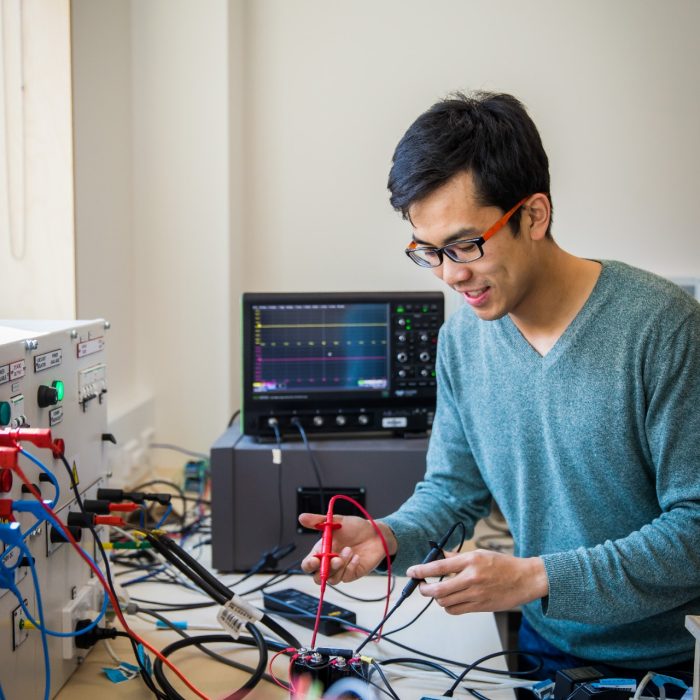Flexible Engineering

What is flexible engineering?
With so many exciting and innovative areas of engineering to choose from, it can be difficult to decide which area of engineering is right for you and your career aspirations. Our Flexible First Year is an option when you study the UNSW Bachelor of Engineering. If you're uncertain which of our 21 specialisations to choose the Flexible First Year gives you the opportunity to explore some of the engineering specialisations on offer before choosing a discipline that is right for you at the end of your first year.
Why study flexible engineering?
If you’re certain you want to be an engineer but aren’t sure which direction to take, this study area will let you explore a few engineering specialisations so you can see what you enjoy and what you’re good at before deciding on your final specialisation.
Flexible First Year students enrol in five core subjects that are part of all our Engineering disciplines (two maths courses, as well as courses in physics, computing, and engineering design). You’re then encouraged to select electives from the options listed in the handbook, focusing on those required in the disciplines you’re considering for your degree. After completing the Flexible First Year, you can transfer into the engineering discipline of your choice. The electives you have taken will either count towards your chosen discipline or count as your first year engineering electives.
Why choose UNSW?
We're ranked #1 in Australia and #25 globally for Engineering and Technology (QS World University Rankings by Subject, 2025). With a wide range of student projects, an award winning ChallEng program that connects you with academics and industry mentors as part of your learning and a continued focus on hands-on learning, your education will ensure you hit the ground running when you graduate.
What about careers?
As long as you choose your first-year electives carefully, you should complete your degree at the same time as those who chose that path from year one. You will also graduate fully qualified and with the exact same knowledge in your area of choice. From your second year you can specialise in a particular field of engineering, which opens up a huge range of career options.
What are my study options?
Our specialised undergraduate degree, the Bachelor of Engineering (Honours) will provide you with a strong foundation in engineering and broad knowledge to then choose an engineering specialisation after your first year.
We offer a range of engineering program specialisations that can be undertaken in our Engineers Australia accredited degrees.
Sample enrolment options
We offer such a wide range of disciplines that there are many possible combinations for your Flexible First Year. To help you choose your courses, we’ve listed possible study plans for several sets of disciplines below. These plans include courses that count towards the listed disciplines and give you a taste of those areas of study, so you can make a more informed choice between them.
You can also view these sequences in myPlan, a free online progression checker and study planner tool for UNSW students. myPlan helps you create a full academic plan for the remainder of your studies. It provides information on course prerequisites, historical term offerings, and allows you to bookmark courses for later - all in one place.
-
Aerospace, biomedical, mechanical and manufacturing, mechanical, nuclear, and robotics and mechatronics engineering
Bioinformatics and software engineering
Chemical, chemical product and environmental engineering
Civil, mining, surveying, and geoenergy and geostorage engineering
Computer engineering
Electrical, quantum and telecommunications engineering
Photovoltaics and solar energy, and renewable energy engineering
